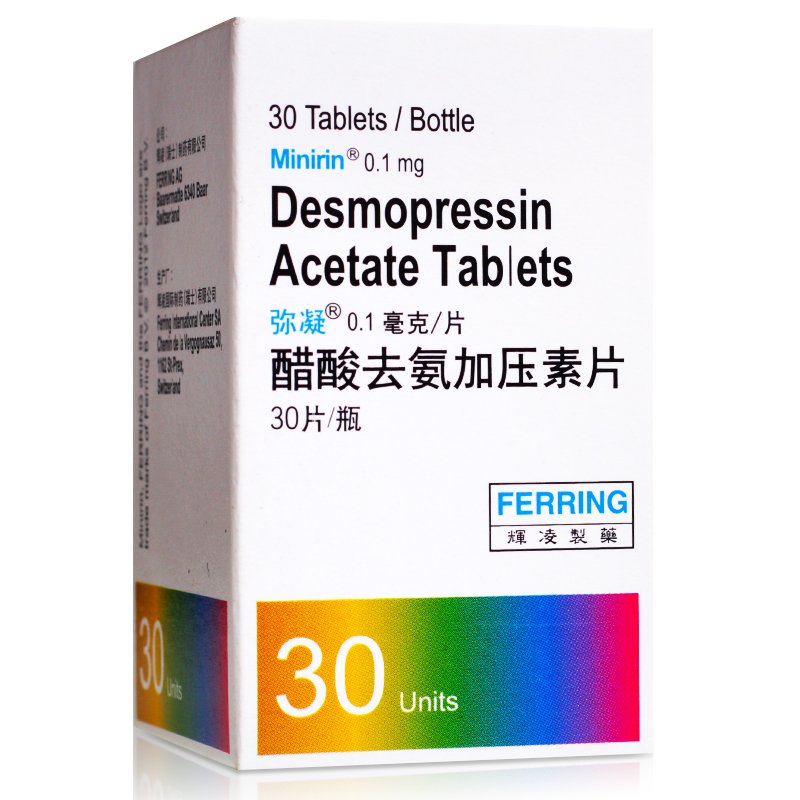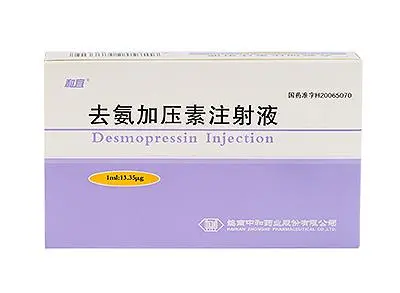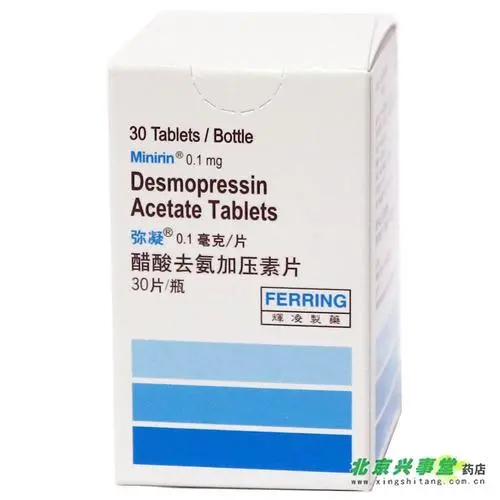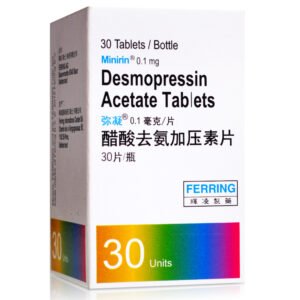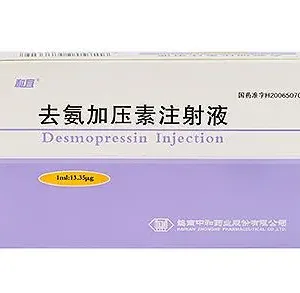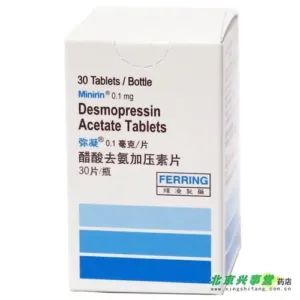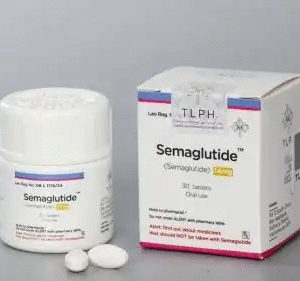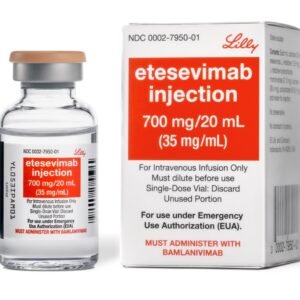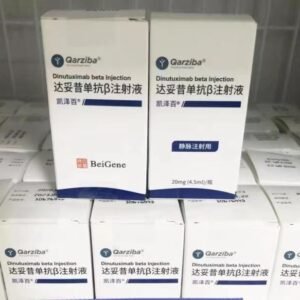Desmopressin Acetate
Effects and efficacy:
Generally used to treat central diabetes insipidus, temporary diabetes insipidus caused by craniocerebral trauma or surgery, nocturnal enuresis in patients aged six years and above, mild to moderate hemophilia A, von Willebrand disease type I and II (except type IIB)
Usage and dosage:
Nasal spray for central diabetes insipidus: Adults start with 10μg, spray before bedtime, and then increase by 2.5μg every night according to urine volume until a good sleep is obtained. If the urine volume is still large throughout the day, add another 10μg to spray in the morning, and adjust the dose according to urine volume until a satisfactory effect is obtained. For maintenance medication, 10~40μg a day, spray in 1~3 times. For children aged 3 months to 12 years, start with 5μg, spray before bedtime, and then increase by 2.5μg every night according to urine volume until a good sleep is obtained. If the urine volume is still large throughout the day, add another 5μg to spray in the morning, and adjust the dose according to urine volume until a satisfactory effect is obtained. Maintenance medication, 2~4μg/kg per day or 5~30μg per day nasal spray (the total amount per day should not exceed 30μg), once a day or divided into 3 doses. Nasal drops: Adults start with 10μg once, gradually adjust to the optimal dose, 3~4 times a day. Children’s dosage should be reduced as appropriate. Nasal drops are easier to control and more convenient for children. Oral administration varies from person to person and should be adjusted accordingly. Adults take 100~200μg once, 3 times a day, and the total daily dose is 200μg~1.2mg; children take 100μg once, 3 times a day. Intravenous injection 1~2 times a day, adults 1~4μg (0.25~1ml), children over 1 year old once 0.4~1μg (0.1~0.25ml), infants under 1 year old once 0.2~0.4μg (0.05~0.1ml). The effective dose of nasal administration for nocturnal enuresis is 10~40μg, starting with 20μg, before bedtime, limit drinking water during treatment and pay attention to observation. The first oral dose is 200μg, taken before bedtime. If the effect is not significant, it can be increased to 400μg. After taking it for 3 consecutive months, stop the drug for at least one week to evaluate whether it is necessary to continue treatment. Renal urine concentration function test Nasal administration Adults 40μg, children over 1 year old 10~20μg. Intramuscular or subcutaneous injection Adults 4μg (1ml), children over 1 year old 1~2μg (0.25~0.5ml), infants under 1 year old 0.4μg (0.1ml) Both of the above routes of administration are within 1 hour, try to empty the urine. 8 hours after taking the medicine, the urine sample should be collected twice to analyze the urine osmotic pressure. The normal value of urine osmotic pressure for most patients after using this product is 800m0sm/Kg. If it is lower than this level, the test should be repeated; if it is still lower than this value, it indicates that the renal urine concentration function is impaired, and the patient should be further examined for diagnosis. Intravenous drip for therapeutic control of bleeding or prevention of bleeding before surgery: dilute 0.3μg/kg with sodium chloride injection to 50~100ml, and drip intravenously within 15~30 minutes. If the effect is significant, it can be repeated 1~2 times at intervals of 6~12 hours; if this dose is repeated many times, the effect will be reduced.
Adverse reactions:
Visible: headache, nausea, stomach pain, allergic reaction, water retention and hyponatremia. Occasionally: increased blood pressure, cyanosis, myocardial ischemia. Fatigue, transient decrease in blood pressure, reflex heart rate, flushing, and dizziness can be seen at high doses. When injected, it can cause pain and swelling at the injection site. Very few patients may cause cerebrovascular or coronary vascular thrombosis and thrombocytopenia. Emotional disorders are rare. It has been reported that children have excessive excitement, aggression or nightmares after taking the drug. If drinking water is not restricted during medication, you may experience water retention and its complications, such as decreased serum sodium and weight gain. In severe cases, it may cause convulsions or even coma.
Contraindications:
Contraindicated for those who are allergic to this product; contraindicated for those with renal impairment; contraindicated for athletes; contraindicated for use during pregnancy; contraindicated for use during lactation; contraindicated for use with children
Share:
Products
Our offers
Health Classification
Let us work together to protect precious health

